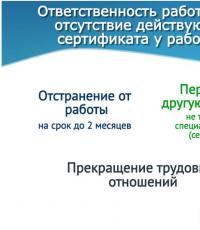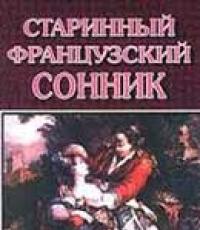Calculation of insurance premiums for temporarily staying foreigners. Foreign worker: specifics of payment of contributions Foreigners work remotely insurance premiums RSV
Temporarily staying foreigners are citizens of the EAEU member countries. Today, 5 countries are members of the EAEU: the Russian Federation, the Republic of Belarus, Kazakhstan, Armenia and Kyrgyzstan (Preamble, Article 2 of the Treaty on the EAEU, Article 1 of the Treaty on the Accession of the Republic of Armenia to the Treaty on EAEU, Article 1 of the Treaty on the Accession of the Kyrgyz Republic to the Treaty on the EAEU). So, from payments to foreigners temporarily staying in the territory of the Russian Federation, who are citizens of these countries, the Russian employer must charge insurance premiums according to the same rules and at the same rates as from payments to Russian employees (clause 4 of article 1 of the Law of July 24 .2009 N 212-FZ, clause 5 of article 96, clause 3 of article 98 of the Treaty on the Eurasian Economic Union dated 05/29/2014, Letters of the Ministry of Labor dated 05/18/2016 N 17-3/В-197, dated 10/02/2015 N 17-3/OOG-1277, clause 2.4 of the Appendix to the Letter of the Pension Fund of the Russian Federation dated November 23, 2015 N NP-30-26/16733).
Insurance premiums for a patent in 2018
In 2017, insurance premiums for foreign citizens will be:
- for pension insurance - 22% on income that does not exceed 876,000 rubles, and 10% on income above this norm;
- for social benefits - for disability and maternity - 2.9% from income not exceeding 755,000 rubles, contributions are not charged in excess of this norm;
- for compulsory medical insurance - 5.1% of the entire amount of income.
In this case, the payer of contributions may also experience:
- the obligation to apply additional tariffs due to the special working conditions of a foreign employee;
- possibility of using reduced tariffs in accordance with the law
The rates of insurance premiums for foreigners in 2017 for injuries will depend on the type of activity carried out by the employer.
Insurance premiums from foreigners in 2017-2018
For other tariffs, see the table at the end of the article. If a foreigner or stateless person is temporarily staying on the territory of the Russian Federation, the employer is obliged to pay only pension and social contributions. Moreover, contributions in case of illness and maternity from payments in favor of such foreigners should be paid at a rate of 1.8%. After all, they are entitled only to temporary disability benefits.
Foreigners from the EAEU countries and highly qualified specialists are included in a separate group. For payments to employees from the EAEU countries, charge insurance premiums at the same rates as for payments to Russians (clause 3 of Article 98 of the Treaty on the EAEU dated May 29, 2014, letter of the Ministry of Labor dated March 13, 2016 No. 17-3/OOG-268). Payments to highly qualified specialists living in the Russian Federation should be accrued only by pension and social contributions.
And payments to temporarily staying highly qualified specialists are not subject to contributions at all.
Taxation of foreign workers in 2018 on patent fees
Attention
When calculating personal income tax on wages of foreign workers, it is important to take into account that standard tax deductions apply only to the income of tax residents. That is, if the employee is not a tax resident, then he is not entitled to these deductions. Recalculation of personal income tax on the income of a foreign worker The tax status of a foreign worker and, accordingly, the personal income tax rate are determined every month on the date of payment of income.
It is not surprising that an employee's status may change during the tax period (calendar year). Accordingly, the personal income tax rate may change - 13% or 30%. The procedure for recalculating personal income tax in this case depends on the specific situation.
Let's look at the most common ones.
Insurance premiums from foreigners in 2018
If the document is not in Russian, you may need a notarized copy. To understand the problem of insurance premiums, we will define three categories of foreigners, which can be:
- permanently residing in the Russian Federation with a residence permit
- temporarily staying in our country - for example, on a visa or on the basis of a migration card
- temporary residents with a temporary residence permit
After the employer provides a package of documents to the Pension Fund, such persons are entitled to SNILS. Why do foreigners need a work patent? In order to employ a foreigner who entered without a visa in your company, you need to check whether he has a work patent and whether he is at least eighteen years old.
Insurance premiums and personal income tax on wages of foreign workers
- The employee’s tax status changed during the calendar year (a non-resident became a resident) and until the end of the year the acquired status will remain unchanged. This situation is possible when the period of stay of a foreigner in the Russian Federation from the beginning of the calendar year exceeded 183 days, that is, regardless of location in subsequent months at the end of the year, the foreign citizen will be a tax resident of the Russian Federation. In this case, starting from the month in which a foreign employee acquired the status of a resident of the Russian Federation, the employer must calculate personal income tax on his income at a rate of 13%, taking into account the overpayment of personal income tax for previous months, calculated at a rate of 30% (Letters from the Ministry of Finance of Russia dated October 3, 2013 No. 03-04-05/41061, dated November 15, 2012, No. 03-04-05/6-1301, dated April 16, 2012, No. 03-04-06/6-113). I propose to consider this case in more detail using an example.
Insurance premiums for foreigners working on a patent
Please note: the tax status of a foreign worker is the object of increased attention from the tax authorities, as it affects the amount of personal income tax, so it is better to request supporting documents from the employee immediately upon hiring and in writing. So, we have figured out what tax status is and how it is confirmed, now it’s time to move directly to calculating personal income tax on the income of foreign employees. First of all, you need to decide on the personal income tax rate: Tax status of a foreign employee Personal income tax rate Tax resident 13% (clause 1 of Article 224 of the Tax Code of the Russian Federation) Tax non-resident 30% (clause 3 of Article 224 of the Tax Code of the Russian Federation) Exceptions (regardless of the tax status):
- highly qualified foreign specialists;
- refugees or foreign citizens who have received temporary asylum in the Russian Federation.
13% (clause 3 of Art.
Temporarily staying foreign citizens: insurance premiums
Please note: Foreign workers with refugee status are entitled to receive social benefits related to the birth of children: maternity benefits; a one-time benefit for women registered in medical institutions in the early stages of pregnancy; lump sum benefit for the birth of a child; monthly child care allowance, etc. (clause “c”, paragraph 3 of the Procedure and conditions for the assignment and payment of benefits, approved by Order of the Ministry of Health and Social Development of Russia dated December 23, 2009 No. 1012n). From 01/01/2015, insurance contributions to the Social Insurance Fund in case of temporary disability and in connection with maternity must be calculated from payments in favor of temporarily staying foreign workers (Federal Law dated 12/01/2014 No. 407-FZ).
Important
In order to strictly comply with the Law, it is necessary to track the validity period of the patent and timely execution of payment of fixed payments for the income tax from individuals. In case of late payment, the patent is canceled the next day after the end of the payment period. The total validity period cannot be more than twelve months, and no later than ten days in advance you can apply for its renewal.
What taxes are imposed on the income of a temporarily staying foreigner? How to fill out the ERSV in this case. What regulatory documents exist - read the article.
Question: There is an entry on the PFR website: “It should be taken into account that temporarily staying foreigners are not insured in the compulsory health insurance system. This means that the calculation base for contributions to pension and health insurance will differ.” http://www.pfrf.ru/branches/spb/news~2014/05/08/63295And in the Order of the Federal Tax Service of Russia dated 10.10.2016 No. ММВ-7-11/551@: "VIII. Procedure for filling out subsection 1.2 "Calculation amounts of insurance premiums for compulsory health insurance"8.1. On lines 010-060, the amounts of insurance premiums for compulsory health insurance are calculated based on the amounts of payments and other remunerations made in favor of individuals who are insured persons in the compulsory health insurance system."A temporarily staying are not insured in the compulsory health insurance system. Maybe you had in mind some new clarifications to the ERSV 2017, could you please provide a link to the law or instructions for filling out in this case.
Answer: There are no official explanations from the inspectorate on this issue. But based on the procedure for filling out the calculation, it follows that in line 040 of subsection 1.2 it is necessary to include payments not subject to insurance premiums for compulsory health insurance in accordance with Article 422 of the Tax Code of the Russian Federation, in line 030 of payments named in paragraphs 1 and 2 of Article 420 of the Tax Code of the Russian Federation. Accordingly, payments to a foreigner temporarily staying must be included in lines 030 and 040 of subsection 1.2. These payments do not affect the base for compulsory medical insurance contributions, since they do not fall into line 050 of subsection 1.2 of the calculation of insurance premiums. The accountant has the right to seek clarification on filling out the calculation from the inspectorate.
Rationale
From Order of the Federal Tax Service of Russia dated October 10, 2016 No. ММВ-7-11/551@
VIII. The procedure for filling out subsection 1.2 "Calculation of the amount of insurance premiums for compulsory health insurance"
8.1. On lines 010-060, amounts are calculated based on the amounts of payments and other remunerations made in favor of individuals who are insured persons in the compulsory health insurance system.1
8.2. Line 010 in the corresponding columns indicates the total number of insured persons for compulsory medical insurance from the beginning of the billing period, for the last three months of the billing (reporting) period, as well as for the first, second and third month of the last three months of the billing (reporting) period, respectively.
8.3. Line 020 in the corresponding columns reflects the number of individuals for whom insurance premiums have been calculated from payments and other remunerations in accordance with the insurance premium rate applied when filling out subsection 1.2 from the beginning of the billing period, for the last three months of the billing (reporting) period, as well as for the first, second and third month of the last three months of the billing (reporting) period, respectively.
8.4. Line 030 in the corresponding columns reflects the amounts of payments and other remuneration specified in paragraphs 1 and 2 of Article 420 of the Code *, on a cumulative basis from the beginning of the billing period, for the last three months of the billing (reporting) period, as well as for the first, second and third month from the last three months of the billing (reporting) period, respectively.
8.5. Line 040 in the corresponding columns reflects the amounts of payments and other remunerations that are not subject to insurance premiums for compulsory medical insurance in accordance with Article 422 of the Code *, as well as the amounts of actually incurred and documented expenses associated with the extraction of income received under the author's order agreement , an agreement on the alienation of the exclusive right to works of science, literature, art, a publishing license agreement, a license agreement on granting the right to use a work of science, literature, art in accordance with paragraph 8 of Article 421 of the Code, or the amount of expenses that cannot be confirmed by documents and accepted for deduction in the amounts established by paragraph 9 of Article 421 of the Code on an accrual basis from the beginning of the billing period, for the last three months of the billing (reporting) period, as well as for the first, second and third month of the last three months of the billing (reporting) period, respectively.
From the Tax Code of the Russian Federation. Part two
Article 422. Amounts not subject to insurance contributions
15) amounts of payments and other remunerations under employment contracts and civil contracts, including under contracts of author’s order in favor of foreign citizens and stateless persons temporarily staying in the territory of the Russian Federation*, with the exception of amounts of payments and other remunerations in favor of such persons recognized as insured persons in accordance with federal laws on specific types of compulsory social insurance.
Foreign citizens temporarily staying in the Russian Federation are foreigners who do not have a residence permit in the Russian Federation or a temporary residence permit (Clause 1, Article 2 of Law No. 115-FZ of July 25, 2002). As a general rule, they have the right to get a job in Russian organizations if they have a work permit or a patent (clause 4 of article 13 of the Law of July 25, 2002 N 115-FZ). At the same time, all employers must pay insurance contributions to extra-budgetary funds from employee benefits (Part 1, Article 7, paragraphs “a”, “b”, paragraph 1, Part 1, Article 5 of the Law of July 24, 2009 N 212-FZ) . This rule also applies to temporarily staying foreigners, but with its own characteristics (clause 15, part 1, article 9 of Law No. 212-FZ of July 24, 2009).
What contributions need to be calculated and at what rates?
In general, insurance premiums from payments made by temporarily staying foreign citizens in 2016 are calculated in the following order (Part 1.1, Article 58.2 of Law No. 212-FZ of July 24, 2009).
| Contributions to the Pension Fund (Clause 1, Article 7 of the Law of December 15, 2001 N 167-FZ) | Contributions to the Social Insurance Fund for insurance in case of temporary disability and maternity (Part 1, Article 2 of Law No. 255-FZ of December 29, 2006) | Contributions to the Social Insurance Fund “for injuries” (Article 5, paragraph 1, Article 20.1 of the Law of July 24, 1998 N 125-FZ) | Contributions to the FFOMS (Article 10 of the Law of November 29, 2010 N 326-FZ) | ||
|---|---|---|---|---|---|
| From the amount of payments within 796,000 rubles. | From the amount exceeding RUB 796,000. | From the amount of payments within 718,000 rubles. | From the amount exceeding RUB 718,000. | Accrued at the same rates as for employees - citizens of the Russian Federation | Not credited |
| Accrued at the same rates as for employees - citizens of the Russian Federation * | Accrued at a rate of 1.8% (Part 3 of Article 58.2 of the Law of July 24, 2009 N 212-FZ) | Not credited | |||
* In addition to the basic premium rates, Law 212-FZ also provides (Article 58 of the Law of July 24, 2009 N 212-FZ) for certain categories of policyholders.
Temporarily staying foreigners - citizens of EAEU member countries
Today, 5 countries are members of the EAEU: the Russian Federation, the Republic of Belarus, Kazakhstan, Armenia and Kyrgyzstan (Preamble, Article 2 of the Treaty on the EAEU, Article 1 of the Treaty on the Accession of the Republic of Armenia to the Treaty on the EAEU, Article 1 of the Treaty on the Accession of the Kyrgyz Republic Republics to the Treaty on the EAEU).
So, from payments to foreigners temporarily staying in the territory of the Russian Federation, who are citizens of these countries, the Russian employer must charge insurance premiums according to the same rules and at the same tariffs as from payments to Russian employees (
It is no secret that all income of citizens of any state is subject to taxes, not counting contributions to various funds. The same rules apply to residents of the Russian Federation. And if everything is more or less clear with them, then let’s consider how things stand with foreign nationals who decide to realize their professional potential in our country, despite the fact that they will not be able to receive a pension here. So, what are insurance premiums for foreigners and how are they calculated in 2019?
What affects the amount of contributions
Since 2015, hiring foreign citizens has become less profitable for employers. But before moving on to the issue of deductions themselves, it is necessary to understand what they depend on.
It is generally accepted that all citizens arriving from other states are divided into several categories based on the permit document with which this person lives in the Russian Federation:
- permanent resident foreigners;
- temporary residents;
- temporarily staying.
The first group includes those who received a residence permit, the second group includes those who received a temporary residence permit, and the third group includes those citizens who are currently on Russian territory only on the basis of a migration card.
All the categories listed above are subject to the calculation of all prescribed contributions. Highly qualified specialists should be included in a separate group - these include workers whose income exceeds 1 million rubles per year. Insurance premiums for such a foreigner who is temporarily staying in Russia are not paid in 2019.
The main disadvantage of the new calculation of tariffs for payments applied to foreigners is the fact that previously they were accrued only when the temporary stay of a migrant worker reached 6 months. Today, such payment is made from the first day of employment. It goes without saying that previously, hiring foreign labor was more profitable for employers than hiring Russians.
Now the situation has changed. Contributions to the wages of foreign citizens temporarily staying in the country are not charged only to highly qualified specialists. For all others the tariff is 22%. 
Contributions to the Social Insurance Fund, according to the new rules, are applicable to all temporarily staying foreigners if they have entered into an employment contract with an employer for a period exceeding six months.
The Social Insurance Fund rate for foreigners in 2019 is 1.8%. For all other categories there is a standard rate of 2.9%. It is worth noting that foreign nationals are entitled to sick pay, but maternity and child benefits still do not apply to them.
Payments in case of injury apply to all categories of citizens arriving in the Russian Federation. In this case, the tariff plan is set individually based on the company’s field of activity.
Health Insurance Fund
Insurance payments to the Compulsory Medical Insurance Fund from foreigners in 2019 are not accrued on the wages of those workers who are on Russian territory in the status of temporary residents, and on payments to specialists of the highest categories.
This, however, does not apply to those who live in the Russian Federation permanently or temporarily: they are subject to a tariff of 5.1%, which in principle is exactly the same as for Russian citizens.
According to the new regulations, the amount of remuneration for which payments are currently accrued to the Medical Insurance Fund is not limited. 
For convenience, we have listed all payment rates in the table:
| Foreign person status | Pension Fund | FSS | FFOMS |
|---|---|---|---|
| Permanent Residents | 22 | 2,9 | 5,1 |
| Temporary residents | 22 | 2,9 | 5,1 |
| Temporarily staying | 22 | 1,8 | 0 |
| Resident specialists | 22 | 2,9 | 0 |
| Specialists temporarily residing | 22 | 2,9 | 0 |
| Specialists temporarily staying | 0 | 0 | 0 |
A separate group consists of persons who have received refugee status in the Russian Federation. The amount of contributions in this case directly depends on migration legislation. Since, having received a refugee certificate, such migrants are equal in all their rights to Russian residents, it turns out that payments are accrued to them in the usual manner.
The situation is different with those who have not yet acquired such a status. Since they cannot yet be called Russian citizens, the amount of contributions for them is calculated according to the scheme for temporarily staying persons. Thus, the interest rate will depend entirely on the stage at which the application is being considered.
Insurance premiums, personal income tax - current issues of calculation and payment: video
Foreign workers are citizens who permanently or temporarily reside or reside on the territory of the Russian Federation. Each employer who decides to employ such persons is obliged to register them with the Pension Fund and pay insurance contributions from the first for work. Foreigners entering Russia without a visa are required to acquire a patent to work. In this article we will talk about insurance premiums for a patent and consider the calculation procedure.
General Employment Requirements
In order to register in the OPS system, a foreign citizen must:
- fill out the Insured Person's Questionnaire at work;
- provide a copy of your identification document. If the document is not in Russian, a notarized copy may be required.
To understand the problem of insurance premiums, we will define three categories of foreigners, which can be:
- permanently residing in the Russian Federation with a residence permit
- temporarily staying in our country - for example, on a visa or on the basis of a migration card
- temporary residents with a temporary residence permit
After the employer provides a package of documents to the Pension Fund, such persons are entitled to SNILS.
Why do foreigners need a work patent?
In order to employ a foreigner in your company who entered without a visa, you must check whether he has a work patent and whether he is at least eighteen years old. In order to strictly comply with the Law, it is necessary to track the validity period of the patent and timely execution of payment of fixed payments for the income tax from individuals.
Which category needs to purchase a patent?
Visa-free foreigners must obtain a patent when applying for a job. Let's take a closer look at the most significant changes. Foreign citizens who arrived in Russia for the purpose of work must receive a special document. Before changes are made, foreign citizens who entered the territory of the Russian Federation on a work visa, as well as visa-free foreigners intending to work in organizations or individual entrepreneurs, will be issued a work permit.
In this case, in the package of documents required for the issuance of a patent, you must submit a migration card in which work will be noted as the purpose of entry.
Responsibility for failure to obtain a patent
At the same time, liability has been established for a visa-free foreigner who lately applied for a patent. For missing the 30-day period, the fine will be from 4,000 to 5,000 rubles. These changes are intended to tighten the requirements for the stay of visa-free foreigners on the territory of the Russian Federation. Currently, there is no time limit for such citizens to apply for a permit or patent. There is no administrative liability for missing such a deadline.
Patents obtained by visa-free foreigners for employment with Russian citizens who do not have entrepreneur status also continue to be valid. However, it is impossible to accept such workers into the organization on the basis of such a patent, since the patent gives the right to work for hire from Russian citizens only for assistance in personal and other similar matters. Upon expiration of the validity period, the patent will not be renewed, and a foreign citizen who has it will have to obtain a patent in the general manner. If a permit is received, it is valid until the end of the period or is canceled, but a patent does not have to be acquired.
Insurance payments for foreign citizens with a patent
No accruals will be made on the income of highly qualified specialists temporarily located in the Russian Federation and working under a contract (labor or civil employment contract), except for contributions for injuries. And the income of other foreign workers temporarily staying in the Russian Federation and working under a contract must be subject to contributions to compulsory health insurance and compulsory social insurance, applying a special rate for compulsory social insurance for disability and maternity
Insurance premiums for permanent residents
Foreigners can work on the territory of the Russian Federation either under an employment or civil service agreement, or as an individual entrepreneur. To temporarily carry out activities, a foreigner must have a work permit (if he arrived on a visa) or a patent (if a visa is not required). The period of temporary stay in Russia will determine the validity period of the corresponding document. This period may be extended.
For foreign citizens who permanently reside in the Russian Federation, the same insurance premiums are provided as for Russians. Accordingly, they are paid for:
- contributions to the Pension Fund tariff 22%.
- for health insurance in the amount of 5.1%.
- social insurance 2.9%.
- from accidents 0.6% or 0.2%.
Features of contributions for temporary residents
According to Russian legislation, foreigners who temporarily stay in the territory of our country are subject to the following types of insurance:
- Mandatory pension, regardless of what contract they work under, including individual entrepreneurs.
- OSS for disability and maternity when employed under an employment contract or of a civil law nature, but not for individual entrepreneurs.
- Compulsory medical insurance, regardless of the type of contract, including entrepreneurs, but not highly qualified foreigners.
- OSS on injuries when performing work under an employment or civil employment contract.
Thus, from the income of foreigners registered under an employment or civil process agreement, the employer is obliged to transfer all types of contributions provided for by law, as well as for the income of citizens of the Russian Federation. In 2017, insurance premiums for foreign citizens will be:
- for pension insurance - 22% on income that does not exceed 876,000 rubles, and 10% on income above this norm;
- for social benefits - for disability and maternity - 2.9% from income not exceeding 755,000 rubles, contributions are not charged in excess of this norm;
- for compulsory medical insurance - 5.1% of the entire amount of income.
In this case, the payer of contributions may also experience:
- possibility of using reduced tariffs in accordance with the law
The rates of insurance premiums for foreigners in 2017 for injuries will depend on the type of activity carried out by the employer.
Insurance premiums for temporary residents
For temporarily staying foreigners, there are their own rules for transfers, since highly qualified specialists are selected from among them, whose income under any of the contracts is not subject to any contributions, except for injuries. The income of other foreign workers registered under the contract will not be subject to contributions to compulsory health insurance, but will be subject to payments to compulsory health insurance and compulsory health insurance.
Tariffs for them will generally be equal to:
- on OPS - 22% on income not exceeding 876,000 rubles, and 10% on income above this amount;
- for OSS for disability and maternity - 1.8% from income not exceeding 755,000 rubles; contributions will not be accrued above this income.
At the same time, situations may arise for the contribution payer when he has:
- the obligation to apply additional tariffs due to the special working conditions of a foreign employee;
- possibility of using reduced tariffs;
- Contribution rates for injuries will depend on the type of activity carried out by the employer.
Answers to common questions
Question No. 1. I am a visa-free foreigner, do I need to change my patent permit?
No, because the permit is valid for its duration or until it is revoked.
Question No. 2. How many times can I re-register a patent if I am behind on the advance payment?
No more than once.




